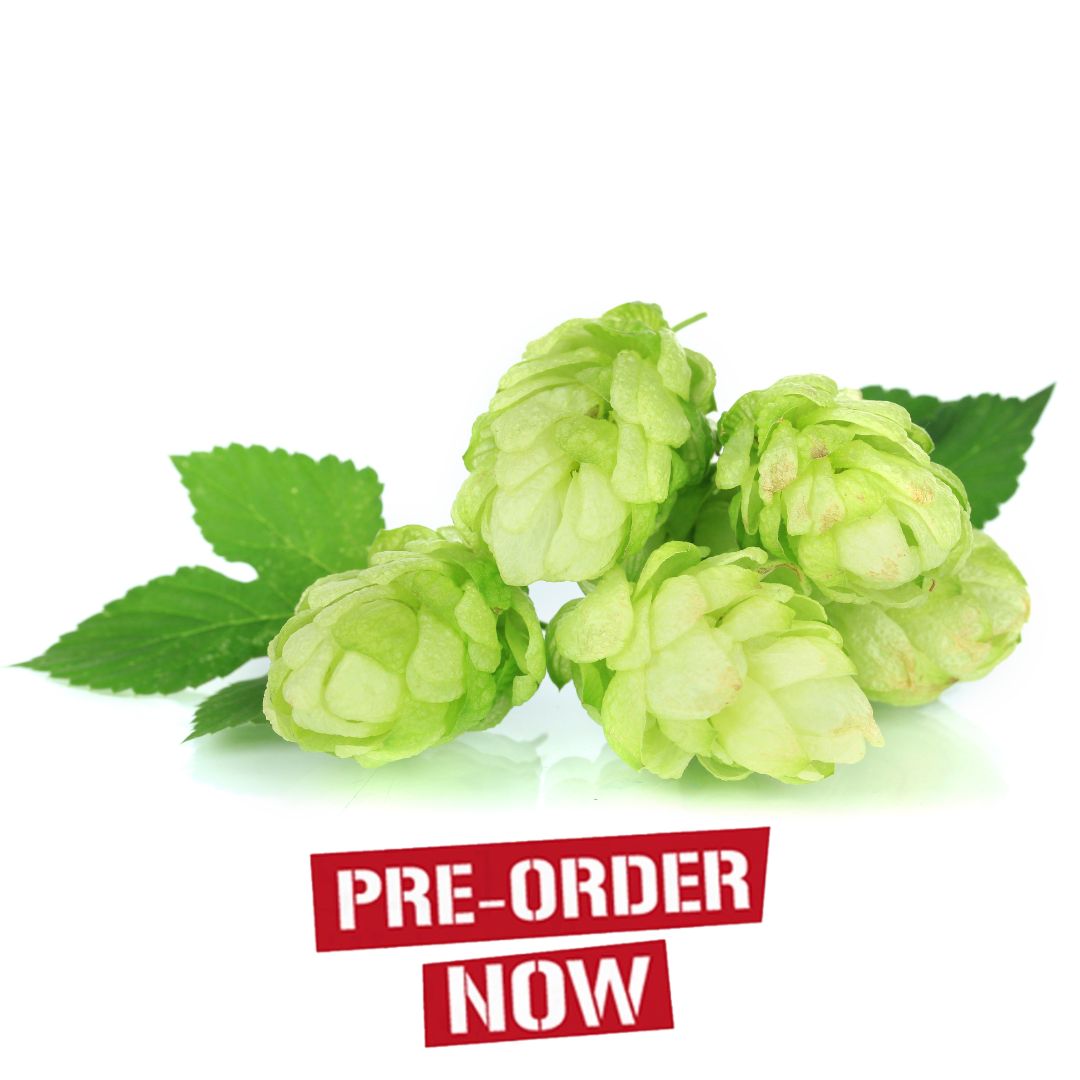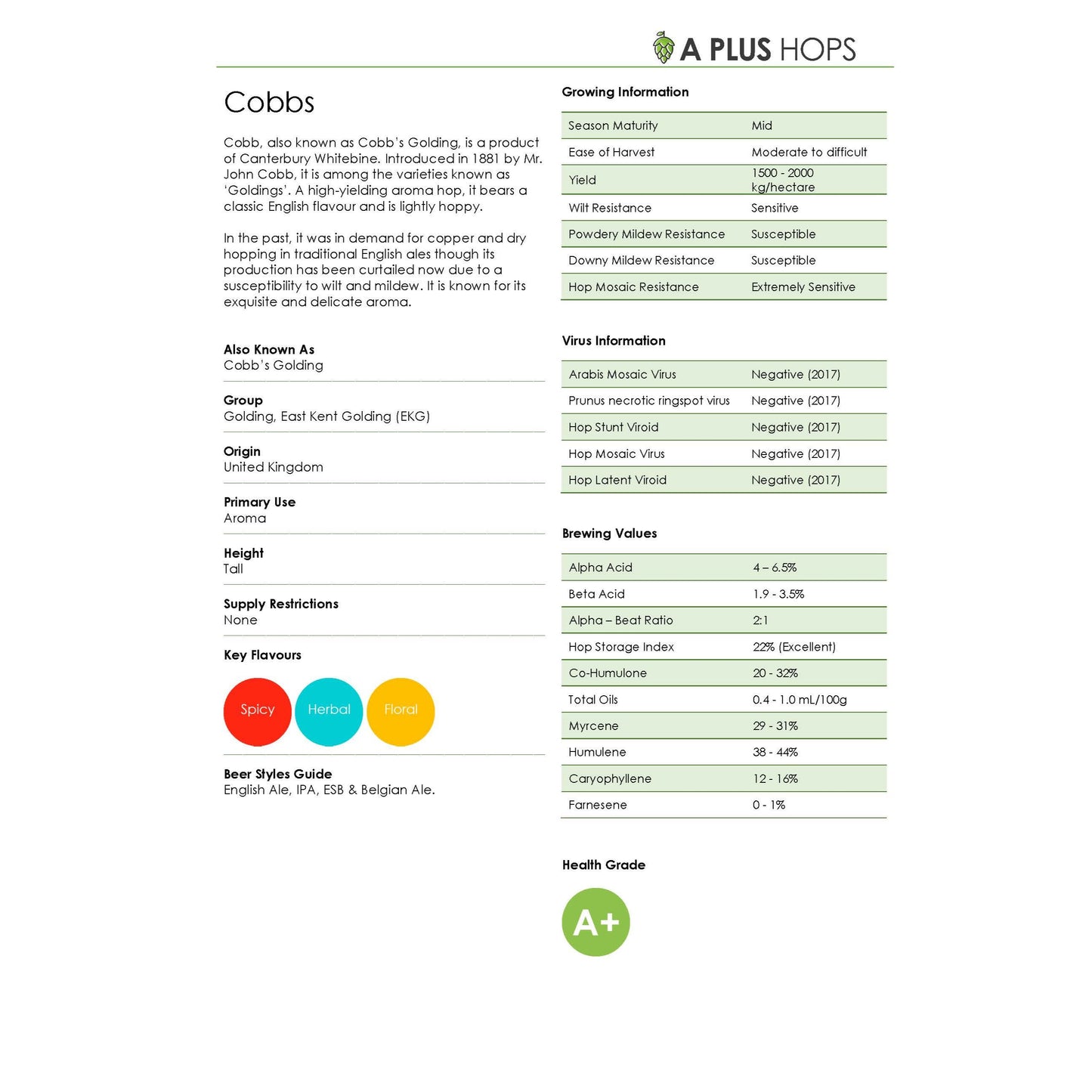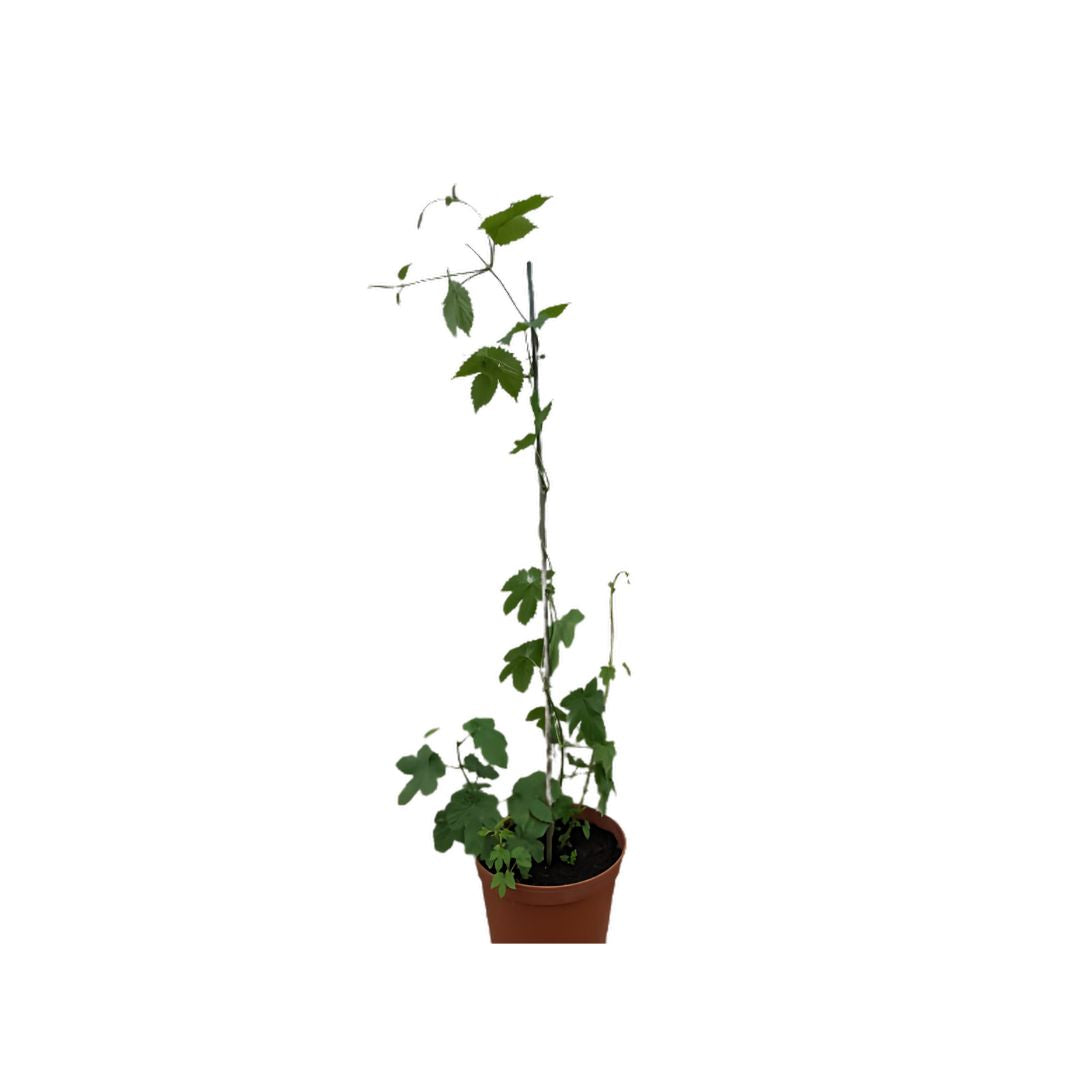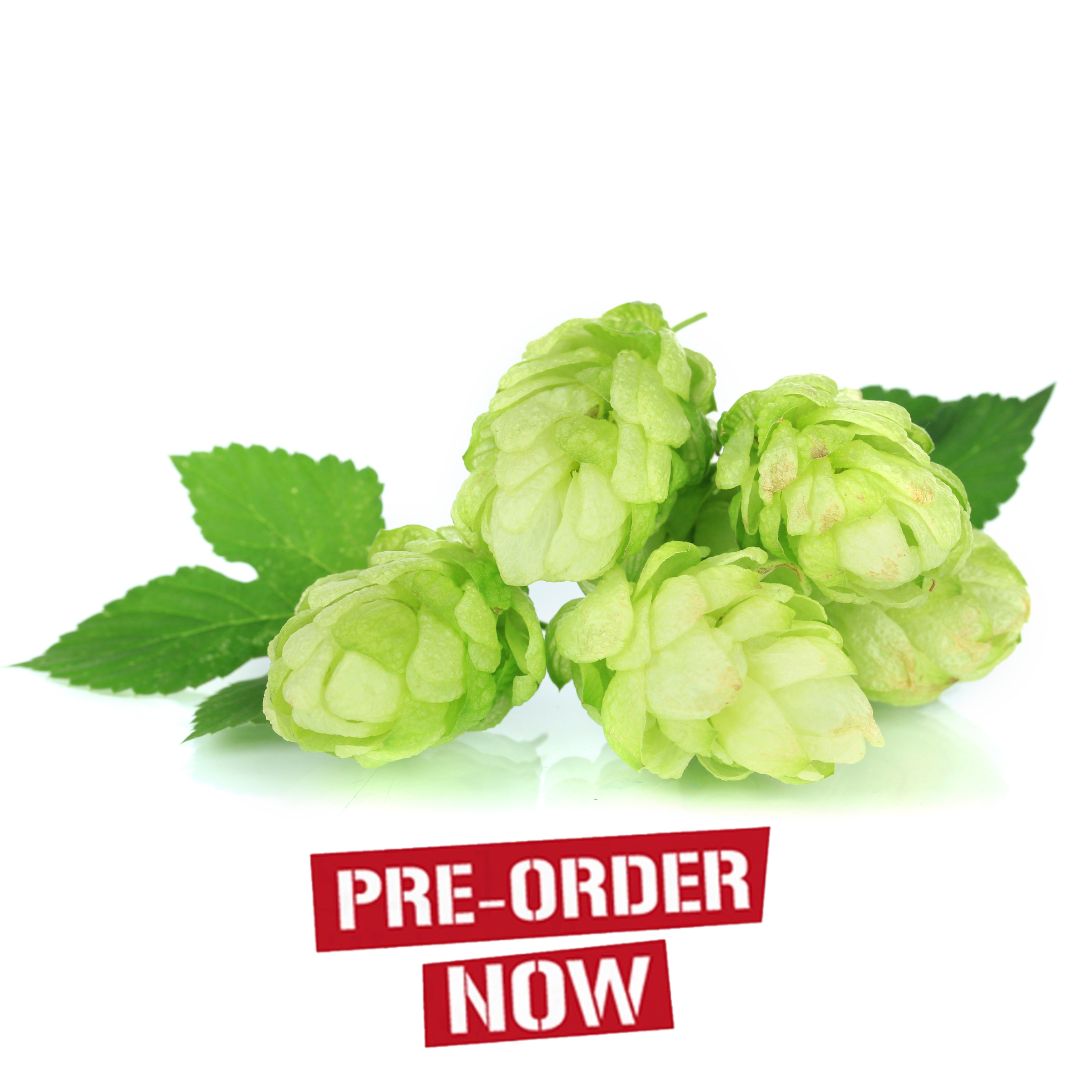Cobb Hop Plant
Cobb Hop Plant
2 Litre Pot (Pre-Order)
Couldn't load pickup availability
Key Flavours
Key Flavours
Variety Information
Variety Information
- Origin: United Kingdom
- Primary Use: Aroma
- Height: Tall
- Group:Golding Varieties
- Also Known As: Cobbs Golding
- Flavour Description: None
- Beer Style Guide: English Ale, IPA, ESB & Belgian Ale
Growing Information
Growing Information
- Season Maturity: Mid Season
- Ease of Harvest: Medium
- Typical Yield: 1500 - 2000 kg/hectare
- Wilt Sensitivity: Sensitive
- Powdery Mildew Resistance: Susceptible
- Downy Mildew Resistance: Susceptible
- Hop Mosaic Virus Sensitivity: Extremely Sensitive
Availability
Availability
Bare root hop plants are available from late November until early April. Dates will vary depending on the weather and ground conditions however, we hope to start lifting from the field by November 1st.
The best time to transplant hop plants lies during this period whilst the plant is dormant.
Plants in 2 Litre pots are available from May until September.
Shipping
Shipping
Free shipping on all UK orders over £30. If you are interested in placing an order for overseas, please enquire by clicking here.
Cobb
Selected by James West, a hop factor, from a garden of Canterbury Whitebine on the farm of John Cobb, Sheldwich, near Faversham, and introduced by Cobb about 1881. It tends to produce strong growth later in the season, so for this reason shoots of only moderate growth should be trained in spring. When ripe the cones should be picked without delay as they do not 'hang' well. The cones have a pleasing appearance and aroma, on suitable soils the yield can be very heavy.
Goldings consist of a group of traditional English Varieties, which have been cultivated for a long time tend to be named after either a hop grower or the parish they were cultivated. Goldings are recognised as having the most typical English aroma, there is special demand for these hops for use in copper hopping and dry hopping of traditional ales. Goldings are also found to be useful for late hopping lagers when a delicate aroma is required.







